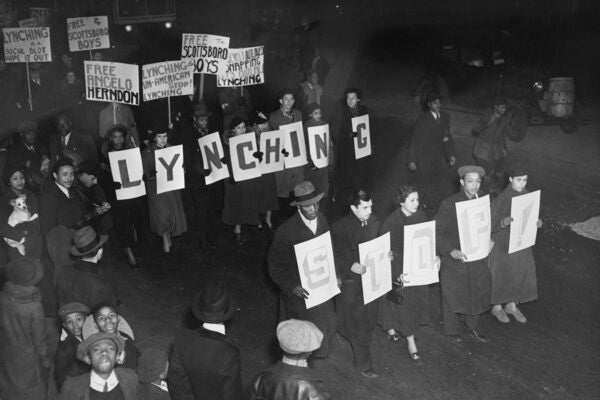Genesis of the Modern American Right
During the Great Depression, financial elites translated European fascism into an American form that joined high capital with lower middle-class populism.
Richard Gregg: An American Pioneer of Nonviolence Remembered
Gregg was one of the first translators of Gandhi’s methods of nonviolent resistance for the West.
The Long Civil Rights Movement
The “master narrative” of civil rights in the United States obscures the history of a more radical civil rights movement that stretches to the 1930s.
“Protecting Kids” from Gay Marriage
Leading up to a 2004 debate about same-sex marriage, conservatives shifted their focus away from moral issues and toward arguments about children’s welfare.
Tree of Peace, Spark of War
The white pines of New England may have done more than any leaf of tea to kick off the American Revolution.
Thurgood Marshall
In a speech marking the bicentennial of the US Constitution, Marshall argued that its framers intentionally inscribed slavery into the American economy.
Biking While Black in DC
Because of its political structure, Washington became a test case in federally mandated laws that enabled racially discriminatory policing of public space.
Endangered: North American Cricket
Cricket was played and cheered in the United States and Canada in the nineteenth century. Why did it fall out of favor with sports fans?
Reclaiming a Coal Town
When the coal business tanked in the 1930s, the company town of Pardeesville, Pennsylvania, briefly transformed itself through collective action.
Printing Anarchy
The stock figure of the “anarchist” is a bomb-thrower or assassin, but political scientist Kathy E. Ferguson argues it should be a printer.









